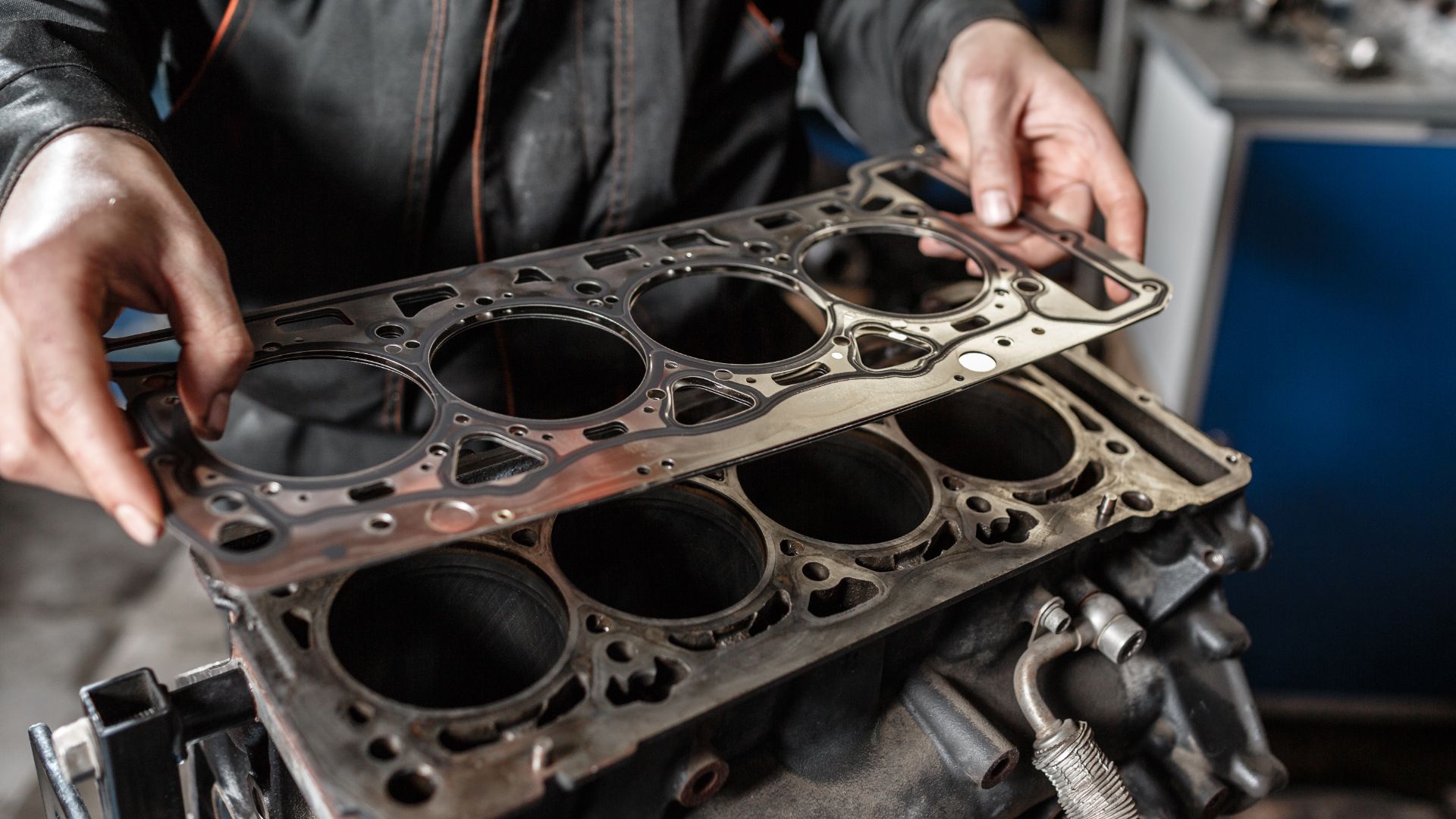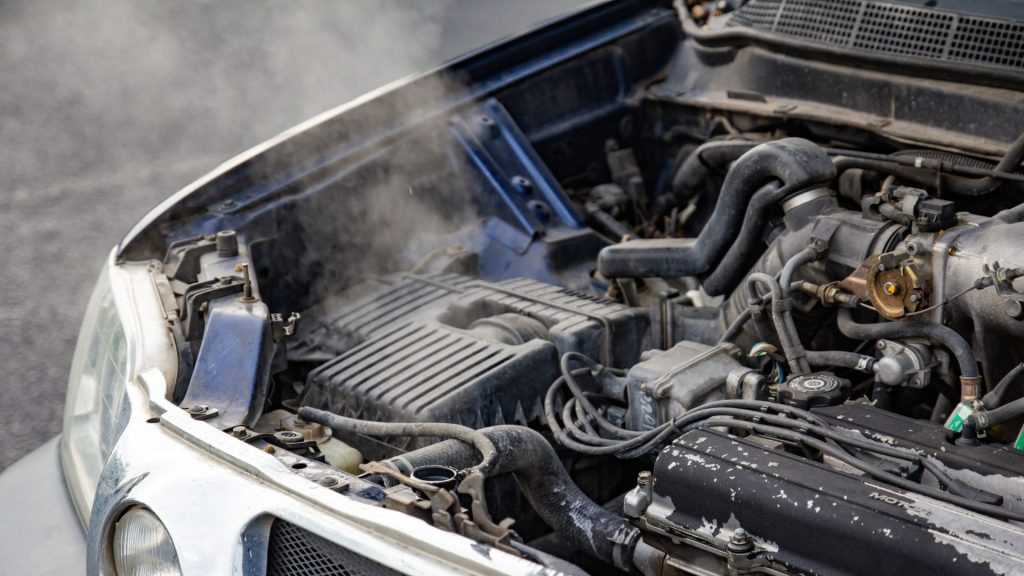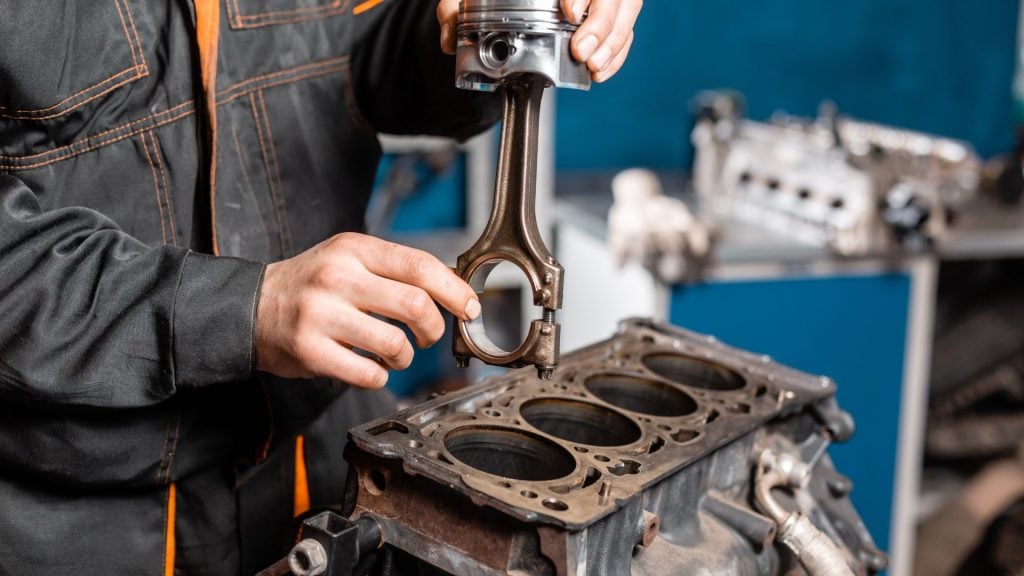Crack engine block symptoms — causes and fixes
Recognize the signs of a cracked engine block and protect your vehicle's performance.

Your vehicle’s engine block is a metal housing containing the pistons, cylinders, crankshaft, and con-rods. It acts as a protective layer covering the sensitive compound process that occurs within it. If you suspect your engine block is cracked, it can be a tricky situation to remedy, which is why it is advisable to avoid it by paying more attention to your vehicle.
An engine block crack can result from overheating, and it is one of the most prevalent causes of engine block crack. When intense heat reaches the engine block, it expands, and some damages appear.
If you have a cracked engine block, your vehicle will run rough and result in the poor performance of your engine. In this article, we will go into the crack engine block symptoms you should know.
Symptoms of the cracked engine block

Some other car problems display similar symptoms of a cracked engine block, so it is crucial to carry out an adequate diagnosis on the vehicle before performing repairs.
A cracked engine block can cause a lot of problems. It can lead to a coolant leakage causing the engine to overheat. This is possible because the circulation system that cools the engine is very fragile.
If you neglect a cracked engine block, it will lead to a potential engine failure and the gradual breakdown of your vehicle. If you notice the symptoms of a cracked engine block, it may not necessarily indicate a cracked engine block since some symptoms may be associated with other car problems.
It is best to visit an auto repair shop to diagnose the issue accurately. Some of the common symptoms you can expect from a cracked engine block includes;
Leakage
When your engine block gets cracked, you notice leaks in your vehicle’s internal and external systems. The leak could be a coolant or engine fluid, and this leakage can broaden to external leaks when you notice oil or coolant on the floor.
This leak typically happens if the outer part of the engine block gets cracked. It is essential to know that the symptoms of a blown head gasket are similar, so a proper diagnosis should be performed before carrying out repairs.
The leak associated with a cracked engine block occurs internally or externally. The internal leak results in coolant leaking into the lube oil or vice-versa. This will cause contamination of both elements.
Overheated engine
An overheated engine could result from a crack in the engine block. This is due to improper combustion or oil and coolant contamination.
The antifreeze helps to keep the engine within its optimum temperature. It is a protective barrier against overheating and protects the engine from getting influenced by external temperature. If the antifreeze becomes jeopardized, it causes the engine to overheat, which is harmful to the vehicle.
The engine temperature gauge is connected to the coolant temperature sensor. It is essential always to check it out while driving from time to time. If you notice that the needle creeps into the red range on the gauge, it means your engine is overheating. You should switch off the vehicle and let it cool before taking measures to remedy the issue. It’s possible to even see the car overheating when idle in case of engine block cracks, as well as it completely stalling after a while.
Coolant and oil contamination
Coolant and oil contamination often arise from cracked engine blocks. The coolant contaminates the oil while the oil leaks through into the coolant. This occurs when the oil and coolant find cracks that give them access to other components.
The engine block contains pathways that transport coolant and oil. These pathways will get jeopardized if the crack of the engine block is close to the path. You might start noticing a milk-colored oil, and this happens because the oil and coolant have gotten mixed up.
If you suspect you have a cracked engine block and have checked for cracks, leaks, and smoke without finding any, you should inspect the state of your coolant or oil.
Visible crack
A visible crack is the easiest way to determine if you have a cracked engine block. It is crucial to look out for the crack points in the engine block casing material. You may need to pull out your vehicle’s engine to inspect it entirely. Getting the help of a professional mechanic is the best thing to do to conduct a thorough inspection and adequate repairs.
Engine smoke
Engine smoke is one of the significant symptoms of a cracked engine block. The smoke usually comes from inside the engine, arising from any crack. The engine block oversees the engine’s combustion process.
It is equipped with cold and heat-resistant features. If there happens to be a crack on the engine block, the combustion process becomes compromised, letting the smoke out of the engine. The smokes are exhaust gas from the engine and usually comes in dark or blues-gray color.
Dirty oil and low oil level
The motor oil lubricates the metal parts within the engine. It keeps the parts slick and prevents them from facing friction or heat. The oil prevents the components from expanding beyond their expected limit.
When there is a low oil level, the engine block will get hot, causing your vehicle to overheat. If this happens, you should pull over and check the oil level, and if it is low, you should refill it.
The motor oil gets dirty over time because it carries carbon and other particles from the engine. It will eventually turn into sludge and prevent the flow of the lubricant. You can avoid this situation by having a regular filter and oil change every 10,000 miles or at least once a year.
Low engine compression
Engine compression is the last combustion stage, and the process is necessary for an engine to operate. This compression involves pressing the mixture of air and fuel together for power generation.
The engine compression changes over time to match the speed and load of the engine. If the engine block gets cracked, it will significantly affect the compression process for power generation.
Poor performance
Once there is a drop in the coolant and oil level accompanied by overheating, the engine will be unable to perform adequately and go into limp mode if the issue becomes severe. A low engine compression can lead to the engine misfiring or running roughly.
The engine defects range from overheating to having white smoke in the exhaust pipe and combustion gases in the cooling system. If you notice any of the symptoms, you should know that your engine block has a crack, so it is crucial to visit an auto repair shop for inspection and repairs.
Can a cracked engine block affect your vehicle performance?
A cracked engine block can affect a vehicle’s performance since it leads to overheating. When the metal components of your engine get hot, they will expand and exert more friction on the car. If this gets severe enough, the engine will seize entirely and lead to an irredeemable problem.
If there are cracks in the cylinder walls, it will affect the car’s performance due to low compression. When the air/fuel mixture gets into the cylinder, part of it will escape through the cracks.
How much does it cost to repair a cracked engine block?
The repair cost of a cracked engine block varies on the crack location, size, and level of damage. In some cases, a new engine block will need to get installed due to high-risk cracks under challenging places to get to.
The repair cost of a cracked engine block ranges from $1,500 to $2,500. The labor cost ranges from $65 to $125 per hour, and the welding materials range from $50 to $100.
How to diagnose a cracked engine block

There are several ways you can check for a cracked engine block. The test method depends on the internal or external crack of the engine block. The most common diagnostic procedures include;
Block tester
The block tester is a device that contains fluid that changes color if there are combustion gases present. It is used to detect an internally cracked engine block.
If combustion gases are present, the engine suffers from a cracked gas block, a cracked cylinder head, or a leaking head gasket. The block tester is placed over the cooling system filler to check if combustion gases are present in the cooling system.
Cooling system pressure test
A cooling system pressure test is used to detect an external coolant leak. This procedure involves pressurizing the cooling system to point out the source of the coolant leak. This pressure tester can also inspect internal coolant leaks alongside a borescope.
Visual inspection
This is the most straightforward procedure to carry out. You can easily spot a crack leaking coolant or oil externally by visually inspecting the engine block.
Our take
Understanding the common symptoms of a cracked engine block will help you to diagnose your vehicle for repair quickly. It is crucial to note that the signs of a bad head gasket are similar to that of a cracked engine block. If you are not sure of the symptoms, you can visit a professional mechanic to carry out the inspection and repair.
What happens if my engine block is cracked?
If your engine block gets cracked, it will lead to an antifreeze leakage from the cooling system causing the engine to overheat.
Can you drive with a cracked engine block?
You can drive a few miles with a cracked engine block. However, it is not advisable since it risks your safety and others on the road. It will also lead to further damage to your vehicle.